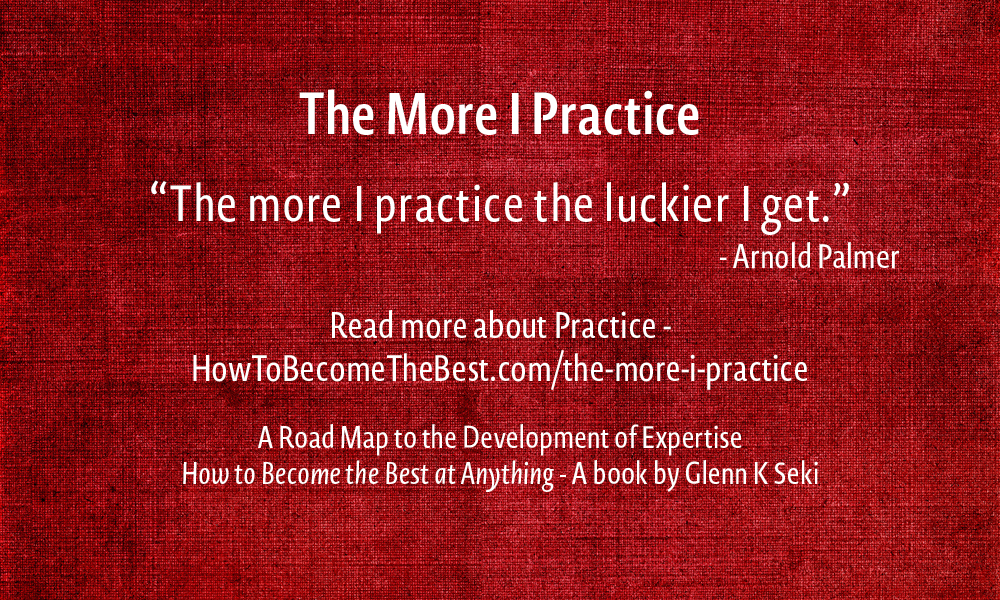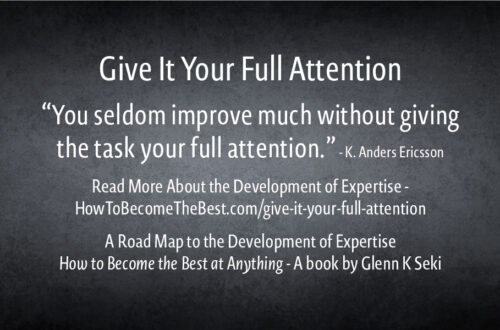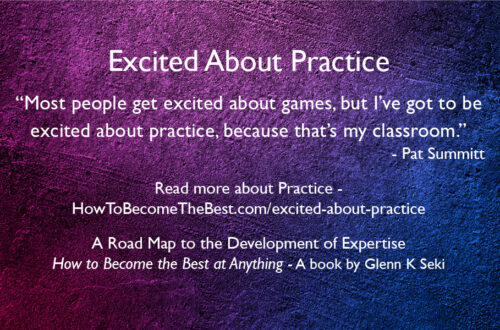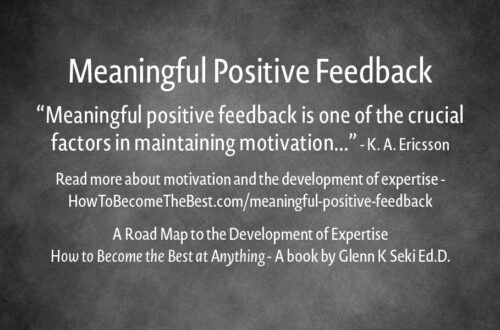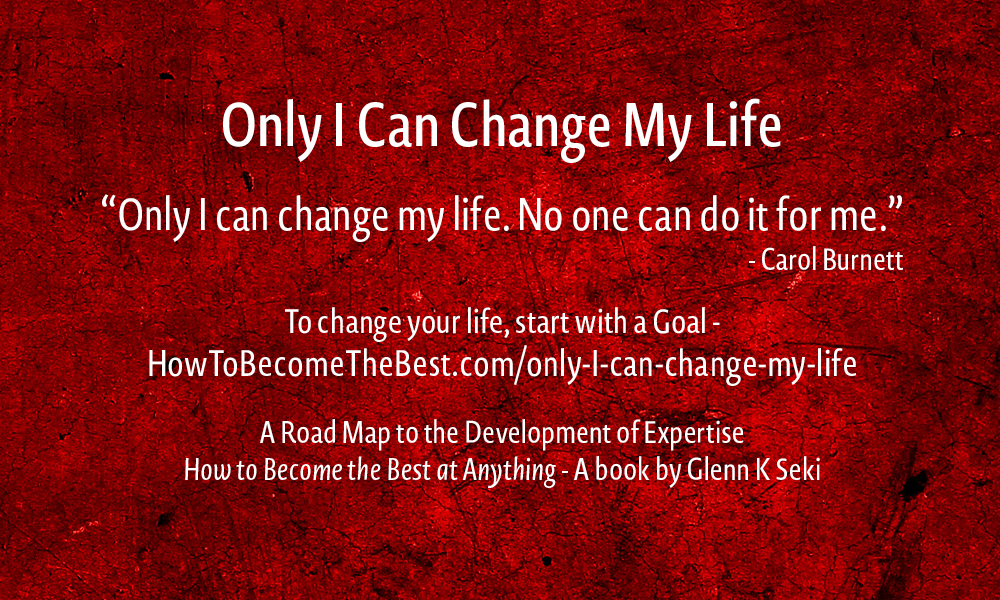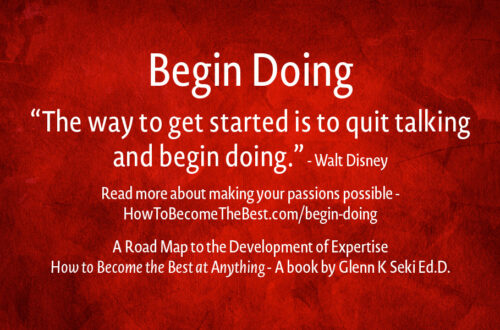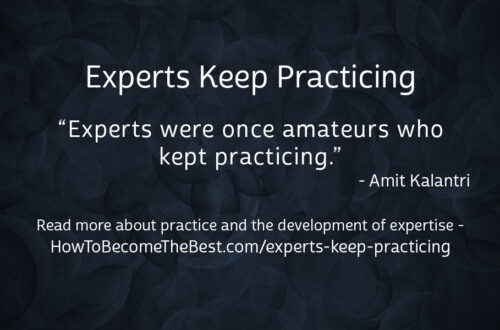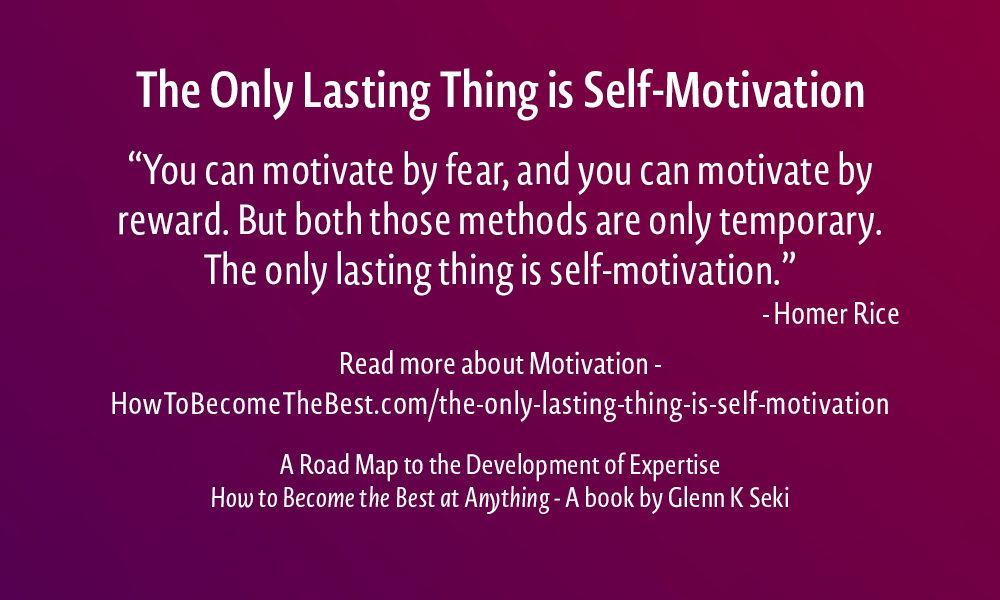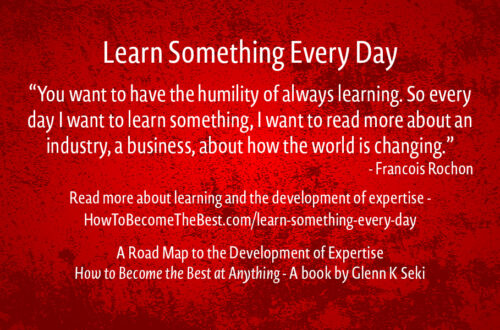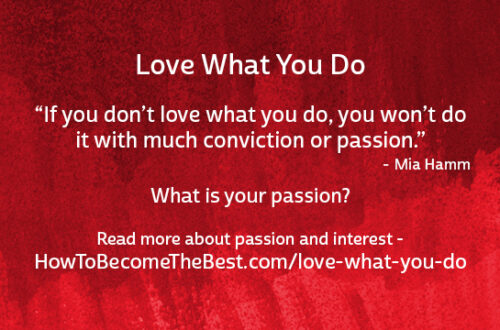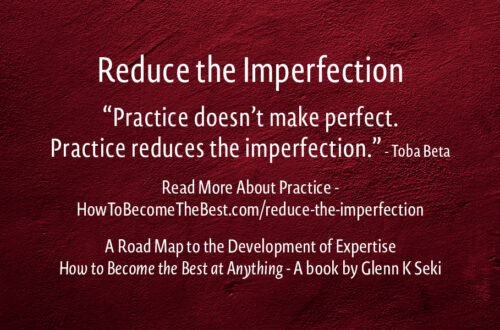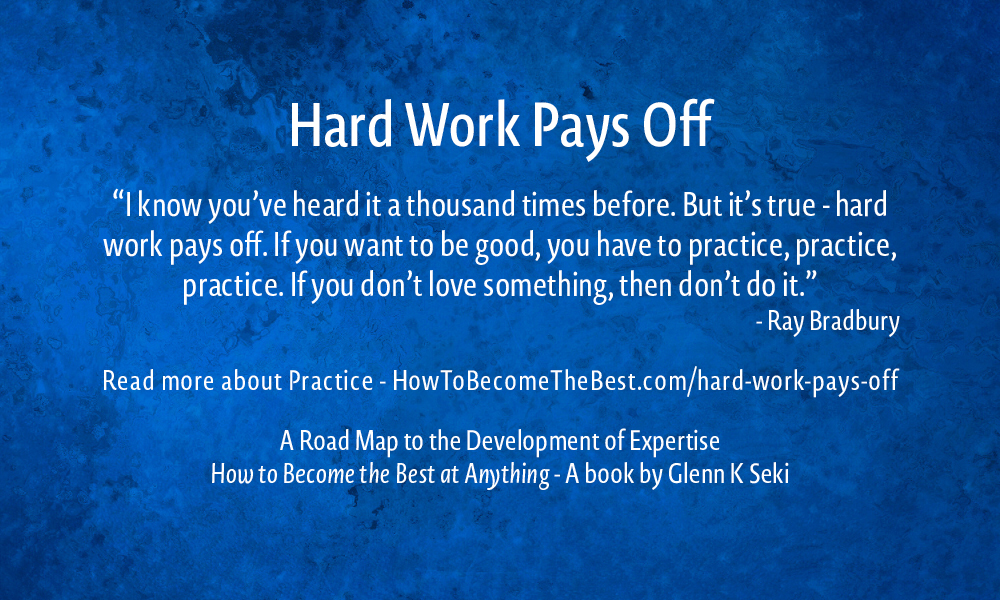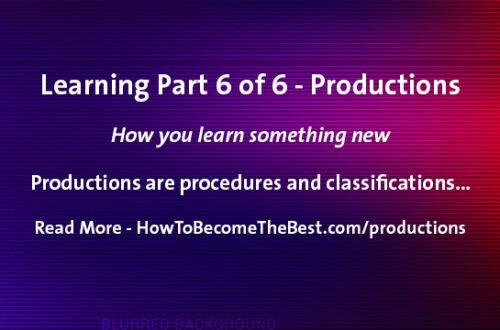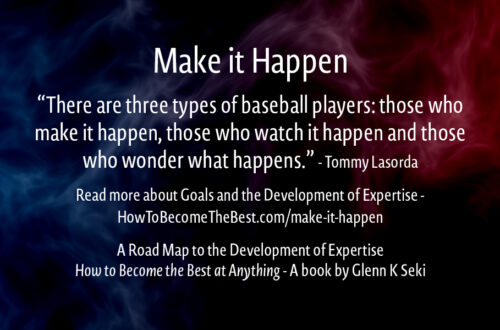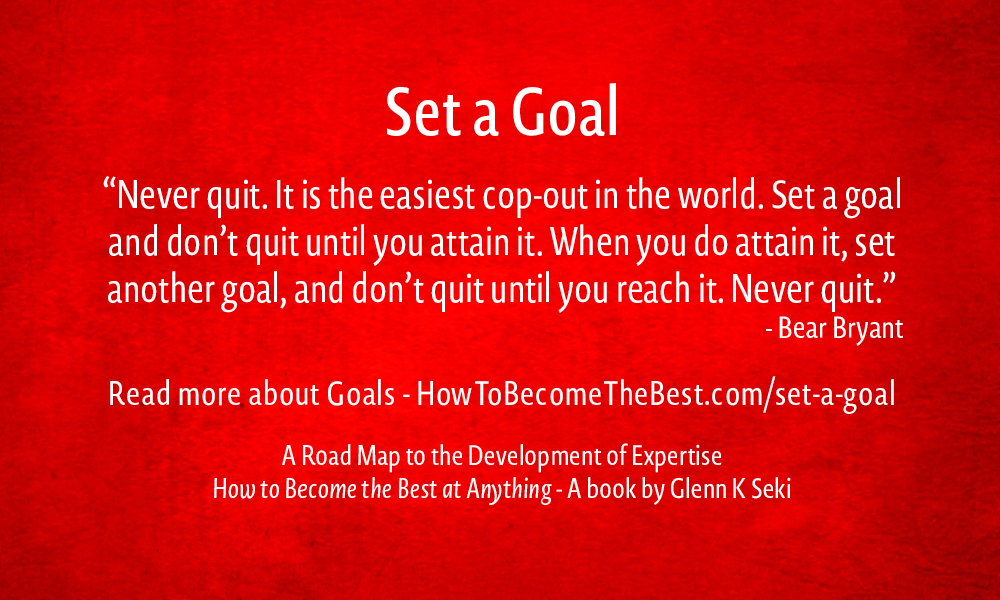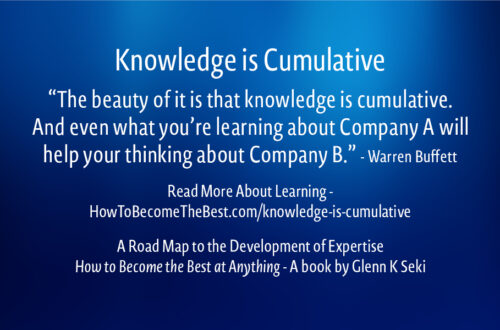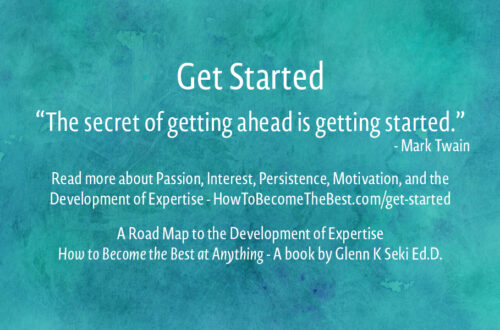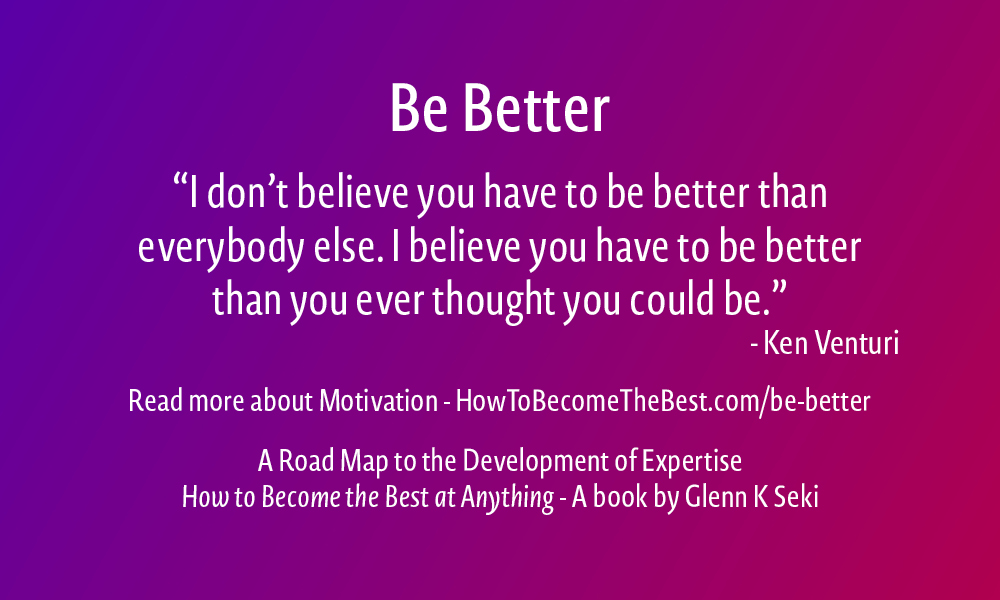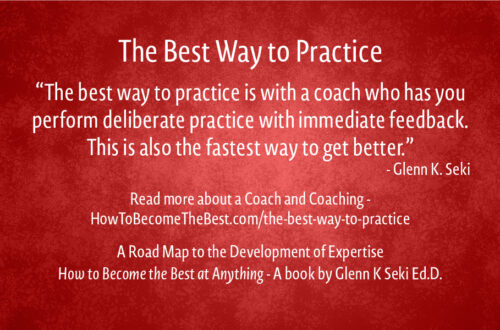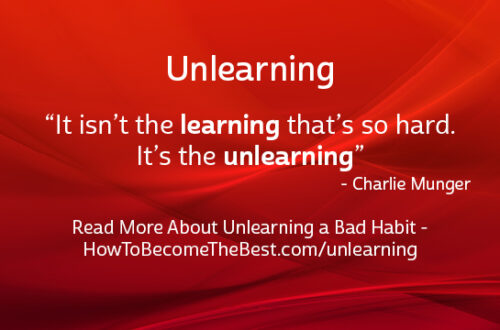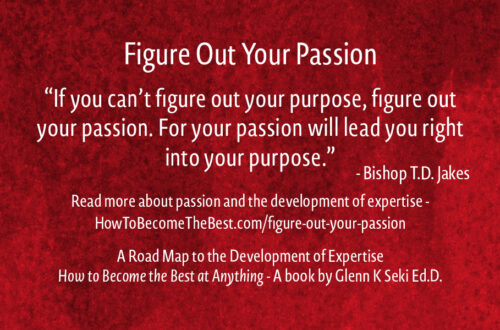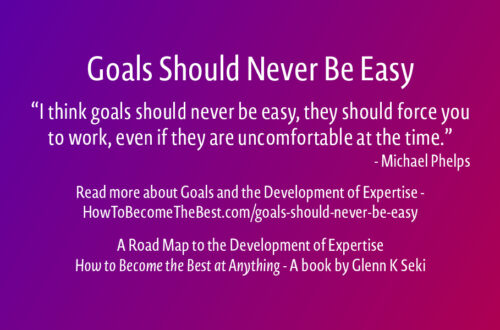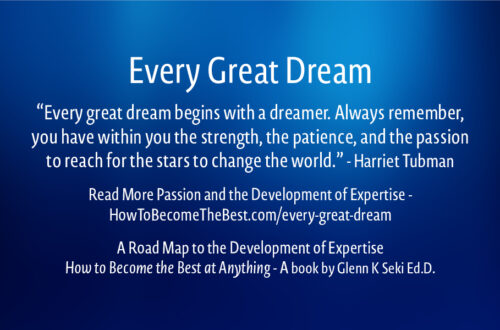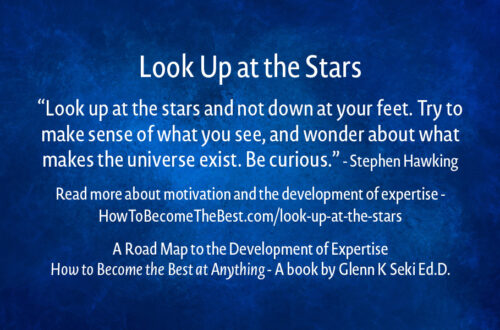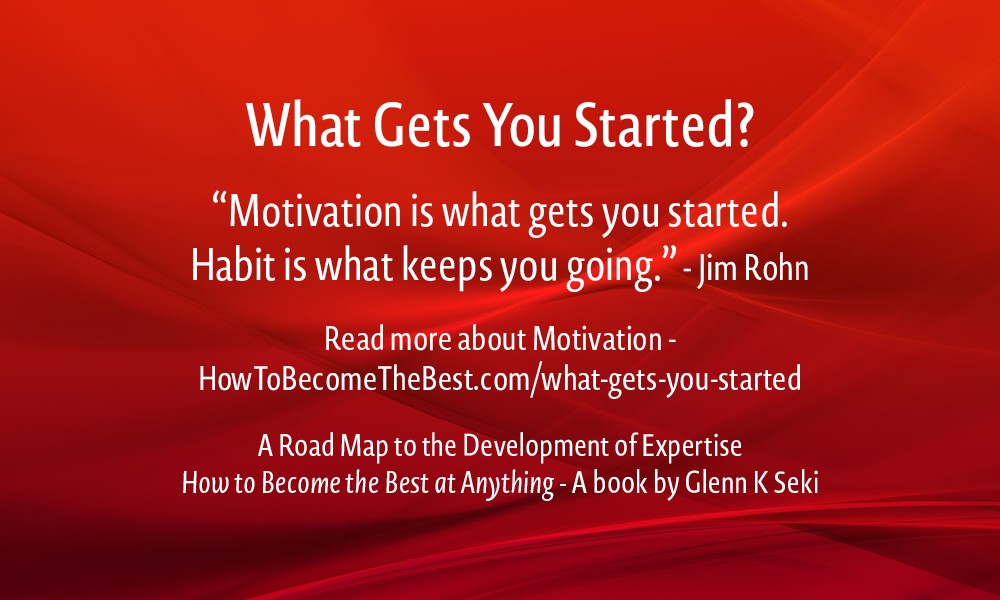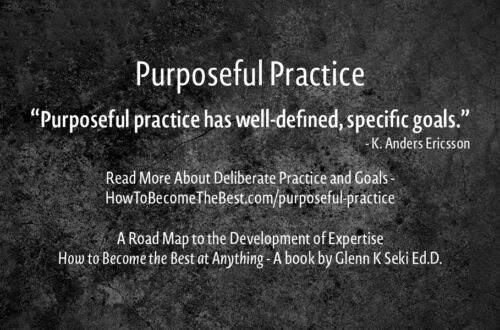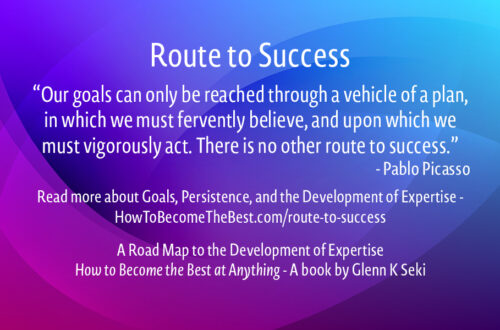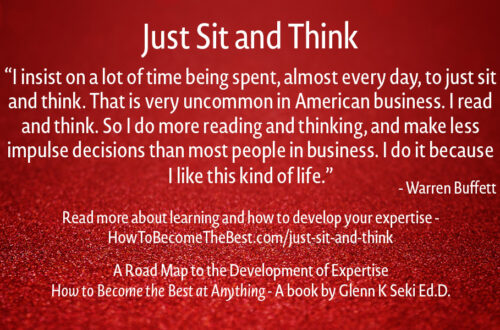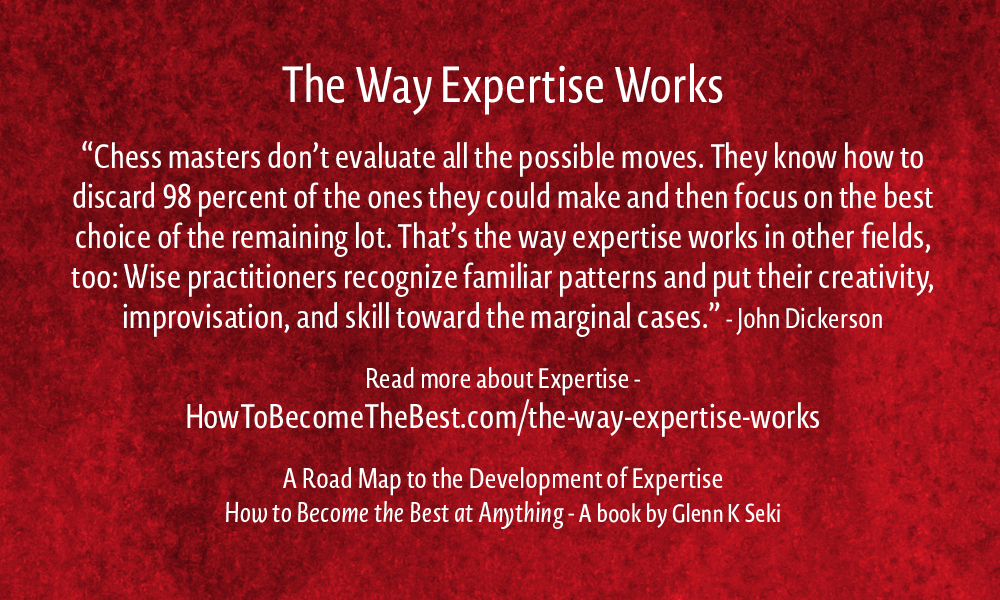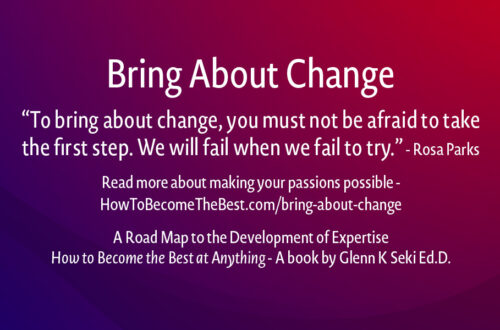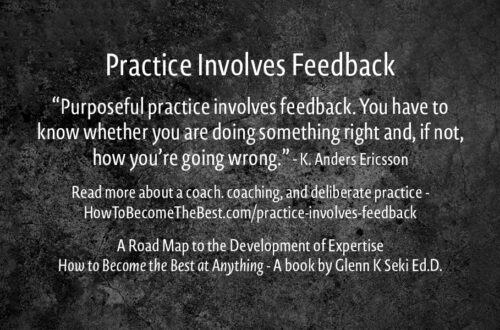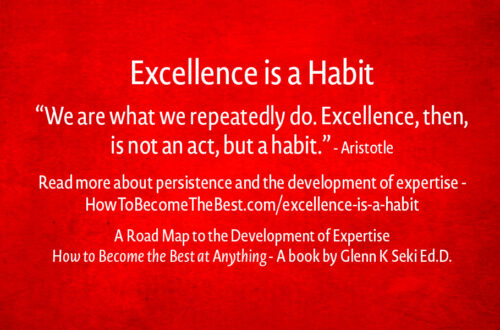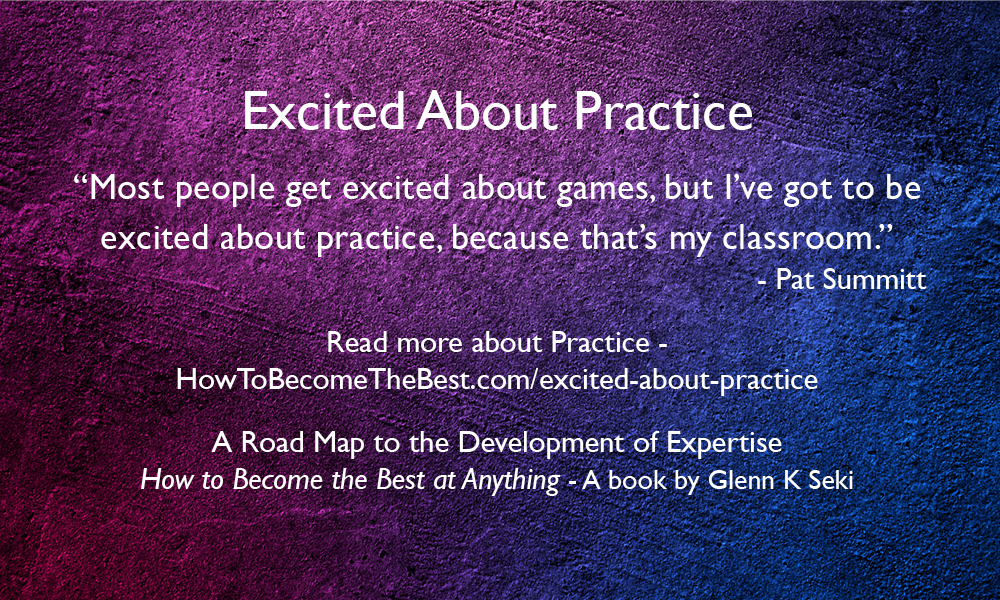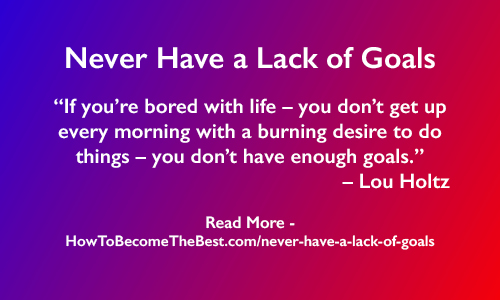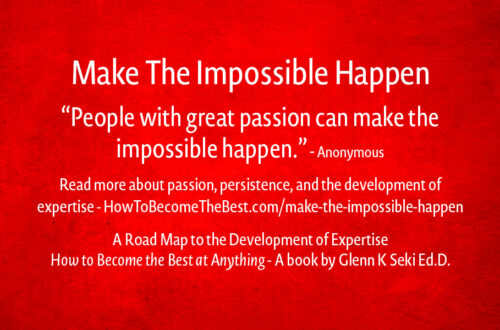“The more I practice the luckier I get.” – Arnold Palmer *** Deliberate Practice and Automaticity An excerpt from How To Become The Best at Anything, Chapter 8, Deliberate Practice and Learning “To become the best takes practice, lots and lots of practice. I have mentioned the 10,000-hour rule. It takes about 10,000 hours of practice to get really good at something and not just any type of practice, but deliberate practice. Deliberate practice is practicing to get better. The classic example is a man who has gone golfing almost every weekend for the past twenty years. He has a great interest in the sport and has fun with it.…
-
-
Only I Can Change My Life
“Only I can change my life. No one can do it for me.” – Carol Burnett *** To change your life, start with a Goal. An excerpt from How To Become The Best at Anything, Chapter 6, Goals and a Path “You need to have a specific ultimate goal. Let’s say you want to win an Olympic gold medal in swimming in the 200-meter freestyle. You have a specific ultimate goal, which is a good start because you know your final destination. When I was in graduate school in biology at UCLA one of my classes was a graduate seminar consisting of three students and two professors (George “Bart” Bartholomew…
-
The Only Lasting Thing is Self-Motivation
“You can motivate by fear, and you can motivate by reward… The only lasting thing is self-motivation.” – Homer Rice *** An excerpt from How To Become The Best at Anything, Chapter 9, Persistence, Motivation, and More About Your Path “Keep practicing no matter what. It will take years, you know this, so you have to keep practicing. You have to keep practicing getting better every time you practice. This is a very hard thing to do. You will get tired, bored, and frustrated. It is hard to keep your focus while practicing. I heard a story about John Wooden (often considered one of the greatest college basketball coaches, ever)…
-
Hard Work Pays Off
“I know you’ve heard it a thousand times before. But it’s true – hard work pays off. If you want to be good, you have to practice, practice, practice. If you don’t love something, then don’t do it.” – Ray Bradbury *** An excerpt from How To Become The Best at Anything, Chapter 8, Deliberate Practice and Learning “To become the best takes practice, lots and lots of practice. I have mentioned the 10,000-hour rule. It takes about 10,000 hours of practice to get really good at something and not just any type of practice, but deliberate practice. Deliberate practice is practicing to get better. The classic example is a…
-
Set a Goal
“Never quit. It is the easiest cop-out in the world. Set a goal and don’t quit until you attain it. When you do attain it, set another goal, and don’t quit until you reach it. Never quit.” – Bear Bryant *** Read below about Goals and Persistence – An excerpt from How To Become The Best at Anything, Chapter 6, A Goal and a Plan “You need to have a specific ultimate goal. Let’s say you want to win an Olympic gold medal in swimming in the 200-meter freestyle. You have a specific ultimate goal, which is a good start because you know your final destination. When I was in…
-
Be Better
“I don’t believe you have to be better than everybody else. I believe you have to be better than you ever thought you could be.” – Ken Venturi *** An excerpt from How To Become The Best at Anything, Chapter 9, Persistence, Motivation, and More About Your Path “Keep practicing no matter what. It will take years, you know this, so you have to keep practicing. You have to keep practicing getting better every time you practice. This is a very hard thing to do. You will get tired, bored, and frustrated. It is hard to keep your focus while practicing. I heard a story about John Wooden (often considered…
-
Lifelong Learning
“Lifelong learning is a must for everyone in this knowledge economy, with rapidly changing technology.” – Lee Kuan Yew *** An excerpt from How To Become The Best at Anything, Chapter 8, Deliberate Practice and Learning Learning “When you are trying to learn something new or you are teaching someone something new, it can be a very daunting task. It is difficult because learning something new is not easy, but it can be made easier if you understand how learning works. Learning can be divided into four basic parts: concepts (definitions and examples), processes (how it works sequences), principles (cause and effect relationships), and productions (procedures/classifications).” *** Concepts “Here’s a…
-
What Gets You Started?
“Motivation is what gets you started. Habit is what keeps you going.” – Jim Rohn *** An excerpt from How To Become The Best at Anything, Chapter 9, Persistence, Motivation, and More About Your Path “Keep practicing no matter what. It will take years, you know this, so you have to keep practicing. You have to keep practicing getting better every time you practice. This is a very hard thing to do. You will get tired, bored, and frustrated. It is hard to keep your focus while practicing. I heard a story about John Wooden (often considered one of the greatest college basketball coaches, ever) while I was a student…
-
The Way Expertise Works
“Chess masters don’t evaluate all the possible moves. They know how to discard 98 percent of the ones they could make and then focus on the best choice of the remaining lot. That’s the way expertise works in other fields, too: Wise practitioners recognize familiar patterns and put their creativity, improvisation, and skill toward the marginal cases.” – John Dickerson *** The chess master has automated a great number of procedures, this allows them to discard the the ones that do not apply without consciously thinking about them, thus allowing them to make decisions with great speed considering all of the possible moves that are possible. An excerpt from How…
-
Excited About Practice
“Most people get excited about games, but I’ve got to be excited about practice, because that’s my classroom.” – Pat Summitt *** An excerpt from How To Become The Best at Anything, Chapter 8, Deliberate Practice and Learning “To become the best takes practice, lots and lots of practice. I have mentioned the 10,000-hour rule. It takes about 10,000 hours of practice to get really good at something and not just any type of practice, but deliberate practice. Deliberate practice is practicing to get better. The classic example is a man who has gone golfing almost every weekend for the past twenty years. He has a great interest in the…
